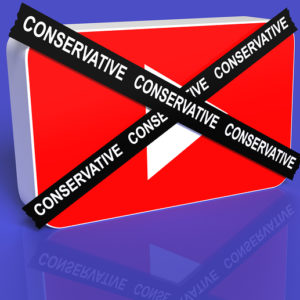Sen. Josh Hawley, a Republican from Missouri, is one of the most outspoken anti-Big Tech Republicans in Congress, repeatedly raising questions about whether Big Tech’s influence is good for society or whether the biggest companies engage in anticompetitive behaviors.
But conservatives and liberals alike say Hawley’s new bill rolling back some protections for tech companies is “absurd,” “bad,” “unconstitutional,” and a slippery slope into government control and censorship of all speech on the internet.
Hawley’s bill, the Ending Support for Internet Censorship Act, would chip away at Section 230 of the 1996 Communications Decency Act (CDA), which offers tech platforms (like Facebook and Google) legal immunity from what their users post. According to Hawley’s new bill, if tech companies do not moderate their content in a “politically neutral” way, they will not receive legal immunity from what their users post.
(Hawley says this will force tech companies not to censor conservatives, even though other more conservative Republican senators like Ted Cruz have said there is only “anecdotal evidence” that tech companies censor conservatives. According to research and data compiled by the Electronic Frontier Foundation, tech companies censor individuals on both ends of the political spectrum, far right and far left, intentionally or unintentionally.)
The bill’s definition of “politically neutral,” according to both conservatives and liberals, is impossibly vague, opening it up to interpretation by whichever political party is in control.
Hawley describes Section 230 as a “sweetheart deal” for Big Tech, allowing them to blur the line between acting as a platform (a place where others can post or upload content) and a publisher (someone who prepares, curates and distributes content for consumption).
Sen. Ron Wyden (D-Ore.), who wrote the CDA, tweeted on Wednesday that Hawley’s bill essentially enables government control of speech.
“[It] will turn the federal government into Speech Police, flagrantly violating the First Amendment,” he tweeted. “This bill would force every platform to become 4chan or 8chan rather than maintain some basic level of decency.”
According to Wyden, all tech companies are liable for making posts that violate federal criminal law, so to him, Hawley’s bill doesn’t even make sense.
“CDA 230 lets private companies take down inappropriate third-party posts without incurring liability,” Wyden said. “It’s designed to protect companies from floods of lawsuits, the sort that kill innovation in its infancy. Republicans used to fight tooth and nail for these protections. But these days, Trump’s Republican Party seems to believe that lawyers and bureaucrats should tell private companies how to make clearly private business decisions. The drive by Republicans to eliminate the autonomy of large private firms is extremely disturbing.”
David French, a conservative commentator from National Review, called the bill “unwise” and “unconstitutional,” and said it “would enable public censorship in the name of limiting private control.”
Aram Sinnreich, chair of communication studies at American University, called Hawley’s bill “disingenuous” and said he entirely missed the root problem with Big Tech.
“This is one of the fundamental questions of our era, is how do we treat [tech] platforms?” Sinnreich told InsideSources. “There is no ideal fix, and this is part of the reason why it’s so dangerous they have become so consolidated. [Hawley is] exploiting uncertainty in the regulatory community to sneak in a form of government overreach in controlling private speech by fiat.”
The irony, Sinnreich said, is that Hawley — a self-described conservative — advocates for very anti-conservative principles with his bill.
“There’s nothing more Big Government than telling private companies they have to amplify certain messages,” Sinnreich said. “It’s totally hypocritical and irrational and blatantly political. He should know better. He does know better,” he added, referencing Hawley’s career as a constitutional lawyer.
Hawley’s bill mimics the Federal Communications Commission’s 1949 Fairness Doctrine, which required broadcasters to present both sides of any issue in a way the FCC considered fair and balanced.
Under President Ronald Reagan’s leadership in 1987, the FCC repealed the Fairness Doctrine, calling it an “intrusion of government” that “restricts journalistic freedom” and “actually inhibits the presentation of controversial issues of public importance to the detriment of the public.”
Sinnreich also noted that as the poles of the political spectrum move farther to the right and to the left, it becomes increasingly difficult to decide what is “politically neutral.”
“Neutrality is in the eye of the beholder,” he said. “It’s part of this larger agenda to mainstream racist rhetoric that has become ascendant in the American right-wing recently. You can find historic impetus for this, like in Europe in the 1930s.”

